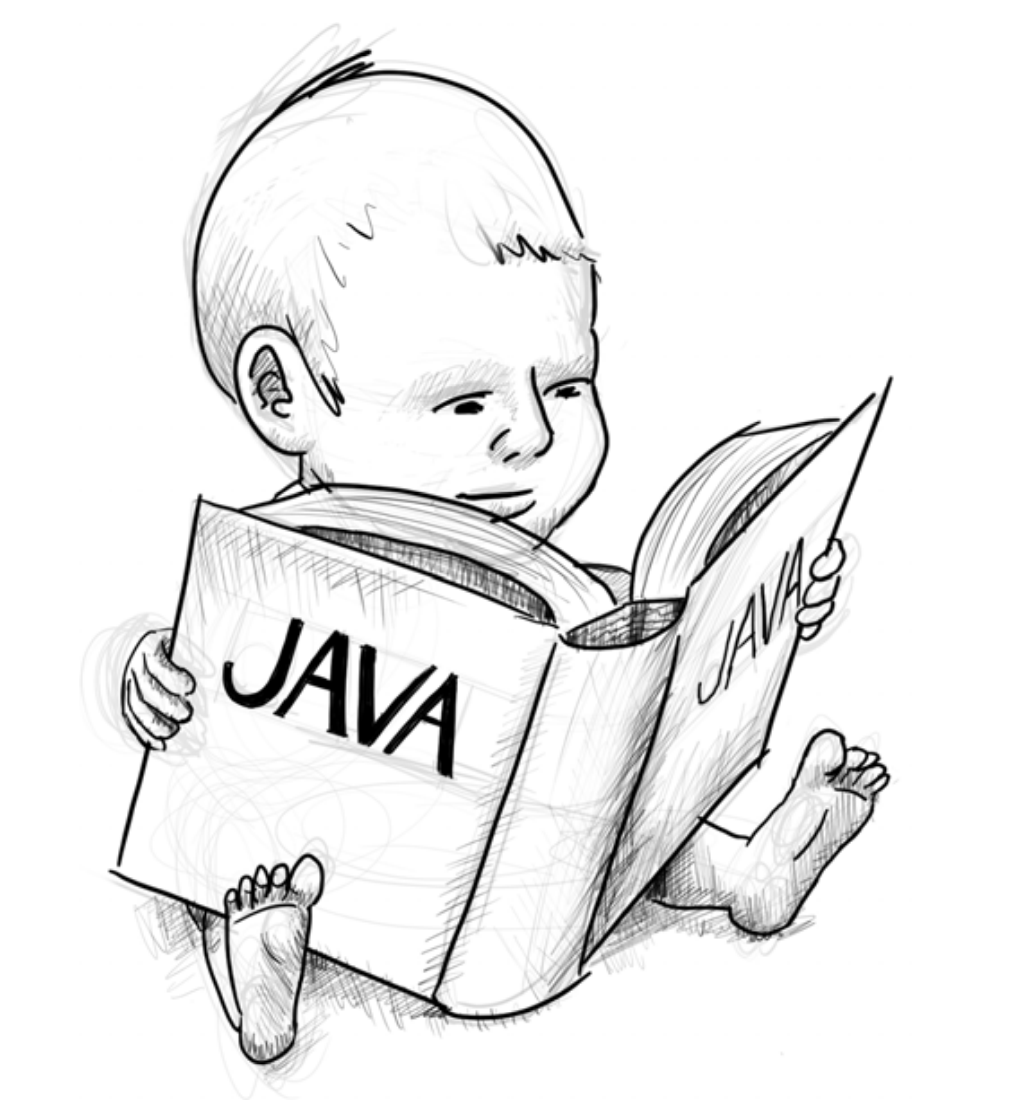You could literally hammer a nail into a shoe, and it would get the job done. But does it really?
- Introduction
- Overview: The Dual Nature of AI in the Junior Developer Experience
- Navigating AI as a Tool, Not a Crutch
- The Apprentice Mindset: A Foundation for Junior Developers
- Tips for Junior Developers Embracing the Apprentice Journey
- Conclusion
- Acknowledgments
- Sources
Introduction
Using AI as a junior developer often provides a sense of hope and easy access to information, but this convenience comes with its own set of challenges when real (client) problems arise. In the spirit of preserving knowledge and fostering communication, I felt compelled to share my perspective on this journey.
This article comes from a moment of reflection during a drive home, where I pondered my apprenticeship and the learning process as a junior developer. This is aimed to comfort fellow juniors and newcomers and to offer relevant feedback to colleagues.

Overview: The Dual Nature of AI in the Junior Developer Experience
As a junior developer, I consider myself a heavy consumer of information. We love that “cooked” knowledge provided by experts and often accept it unquestioningly, building on it. The depth of these insights and experiences helps us retain information, carving it into stone.
In contrast, the quick, easy information provided by AI tools may feel useful at the moment but is often fleeting, like writing on the beach—easily erased by the next wave and quickly forgotten. I’ve experienced the feeling of solving a problem with AI’s help only to realize later that I can’t remember how or why it worked. This led me to reflect on the types of information that stick and those that don’t.
When AI is Incredibly Beneficial
AI proves highly advantageous in specific scenarios. For instance, when tackling technologies outside our primary focus, such as front-end development while specializing in back-end work, AI can offer fast, reliable guidance.
This support helps junior developers bridge knowledge gaps quickly, enabling them to move forward without unnecessary delays. I found this particularly useful when working with Angular; AI-assisted prompts helped me understand components and streamline my refactoring process.
Another benefit is AI’s ability to provide code snippets, templates, and solutions for unfamiliar areas. These resources can boost confidence and momentum, allowing developers to progress more efficiently. For junior developers, AI offers valuable support when they face obstacles, helping them overcome challenges and continue their work productively.
The Drawbacks of Over-Reliance on AI
Despite the numerous benefits that AI can offer, over-dependence on these tools can lead to significant drawbacks that affect our long-term development and problem-solving capabilities.
AI-generated solutions provide immediate satisfaction and relief when faced with coding challenges. However, the knowledge gained from these quick fixes is often fleeting. When developers rely on AI without engaging in hands-on practice or active problem-solving, they miss the chance to solidify their understanding of the concepts. As a result, information fades quickly, leaving only a vague recollection. This lack of retention can hinder the ability to tackle similar problems independently in the future.
Additionally, heavy reliance on AI can create what I call Dependency Addiction. This dependency weakens critical skills essential for a developer’s growth and proficiency, such as debugging and troubleshooting. When juniors frequently turn to AI, they may miss out on the practice of tracing errors and manually solving problems, which stifles their ability to independently resolve issues. The same applies to refactoring skills; while AI-generated code might work, it often lacks the nuanced analysis that comes with deep understanding. Developers may miss valuable learning opportunities in improving or adapting code, as they may not fully grasp the reasoning behind AI-suggested changes. Moreover, in situations where AI tools become unavailable due to an outage, developers who depend on AI for problem-solving may feel unprepared and overwhelmed, which could lead to frustration and reduced productivity.
Finally, while AI can generate code quickly, it can also introduce hidden risks. What may initially appear functional could devolve into a “can of bugs”-code that works under certain conditions but fails in a production environment. These issues can arise from a lack of thorough testing, a limited understanding of best practices, or failure to consider the specific context in which the code operates. Ultimately, this can result in technical debt and increased maintenance costs, undercutting the advantages AI was intended to bring.
Navigating AI as a Tool, Not a Crutch
Should we ride the AI wave? Yes, but with critical practices in place.
First, it’s crucial to review and understand AI-generated code. Rather than accepting the code at face value, take the time to dissect it and grasp how it functions and why certain choices were made. This examination transforms AI outputs into valuable learning opportunities, allowing developers to deepen their understanding of specific patterns and practices. By questioning and analyzing AI’s suggestions, we can integrate these insights into our own problem-solving toolkit, enhancing our knowledge and making us more effective in coding independently.
Secondly, making a habit of practicing without AI is key. Regularly writing and debugging code without AI assistance builds the foundational skills essential to any developer. While AI can expedite tasks, the ability to manually construct, troubleshoot, and optimize code is irreplaceable. Practicing without AI fosters resilience and improves proficiency in critical areas like syntax fluency, logical structuring, and error handling. This hands-on experience is vital for developing a well-rounded skill set that can be relied upon in any situation.
Lastly, fostering an analytical spirit helps developers approach problems thoughtfully before turning to AI for solutions. Treat each coding challenge as an opportunity to independently think through potential solutions. By engaging deeply with the problem at hand, developers cultivate an analytical mindset that sharpens creativity and adaptability. This approach is especially valuable in real-world development, where problems often demand innovative, context-sensitive solutions that AI alone may not adequately address.
The Apprentice Mindset: A Foundation for Junior Developers
What Does It Mean to Be an Apprentice?
Marten Gustafson, an expert we interviewed, summed up the apprentice mindset beautifully: “I guess it basically means having the attitude that there’s always a better/smarter/faster way to do what you just did and what you’re currently doing. Apprenticeship is the state/process of evolving and looking for better ways and finding people, companies, and situations that force you to learn those better/smarter/faster ways.”
This is what I found defined in the book Apprenticeship Patterns: Guidance for the Aspiring Software Craftsman by Dave Hoover and Adewale Oshineye.
Being an apprentice is about embracing continuous growth and self-improvement. It marks the start of your journey as a software craftsman, focusing on personal development and skill-building. While guidance from peers and senior developers is invaluable, the true essence of apprenticeship is learning how to grow independently and understanding how you learn best.
Apprenticeship in Practice
Christopher Alexander said in A Pattern Language:
“The fundamental learning situation is one in which a person learns by helping someone who really knows what he is doing.”
For junior developers, this means diving into projects, taking on tasks that push your comfort zone, and observing how more experienced colleagues solve problems. This type of learning builds practical wisdom that books and tutorials often can’t replicate.
Tips for Junior Developers Embracing the Apprentice Journey
-
Stay Curious and Humble
Understand that there is always more to learn. Embrace the experience of not knowing something and the journey of learning it. I’ve encountered people with remarkable, respectable experience, yet they remain eager and open to learning more. Their humility and curiosity show that even the most knowledgeable individuals recognize the endless possibilities for growth. This mindset can inspired me to stay curious, push my boundaries, and continuously evolve. -
Ask Questions Without Fear
Jake Scruggs, in “My Apprenticeship at Object Mentor”, highlighted:“Tomorrow I need to look stupider and feel better about it. This staying quiet and trying to guess what’s going on isn’t working so well.”
Don’t hesitate to ask questions. Staying silent and guessing hinders your learning more than asking questions does.
-
Identify and Fill Skill Gaps
It’s normal to feel like others have skills you lack. Instead of being discouraged, pick one skill and commit to mastering it. By filling these gaps, you build a strong foundation. -
Embrace Challenges and Learn from Mistakes
Mistakes are an essential part of the learning process. Treat each one as an opportunity to improve your problem-solving skills and deepen your understanding. Sometimes, I deliberately make mistakes to learn about their impact on the codebase. Why do I do this? It’s simply how I feel most comfortable learning, A BEHAVIORAL PATTERN. I find it motivating to make a mistake, then either figure out the solution myself or learn from someone correcting me. -
Your Learning Pattern Is Defined By You
In my opinion, you should harness your energy and motivation to shape a learning path that suits you best.

Don’t get me wrong—I’m not here to sell you independence just for the sake of it. What I’m trying to express is that you shouldn’t consume all the information presented to you without discretion. Take it in thoughtfully so you know how relevant it is for you.
Uncle Bob, for example, offers great insights, and I’ve certainly learned a lot from him to improve as a programmer. At the same time, though, there are a few concepts I sometimes find to be a bit “nonesence”.
-
Code Reviews Are Compliments, Not Insults
During my first code review, I felt disheartened by the feedback, especially since the codebase itself was flawed. However, I realized that code reviews are compliments—they signify someone investing time and expertise to help you grow.
Conclusion
AI holds immense potential to support junior developers by providing quick solutions and accessible knowledge. However, it’s essential to use it wisely and ensure it doesn’t become a crutch. While AI can be a powerful tool for quick fixes, true growth comes from developing strong analytical skills and deep comprehension. Quick solutions may address immediate issues but won’t always contribute to lasting growth or prepare you for complex challenges.
By integrating AI responsibly and focusing on foundational skills, we can transform it from a tool that blindsides us into one that illuminates our path toward development expertise. Reflect on your habits, adapt thoughtfully, and share these insights with peers to navigate the modern developer’s journey together.
Apprenticeship is about facing knowledge gaps, creating your own leraning pattern, nurturing problem-solving instincts, and embracing the journey with patience. Remember, every challenge adds to your expertise, and balancing AI assistance with real learning builds a foundation for a successful and sustainable career.
Acknowledgments
I want to add my sincere thanks to my colleagues and mentors. Their friendliness and fun spirit make each day enjoyable, and their enthusiasm turns learning into a rewarding experience. They are always open and welcoming, ready to offer guidance, share knowledge, and provide support whenever I need it. Working alongside them makes every challenge easier and every achievement more meaningful. Thank you all for creating such a supportive and inspiring environment!
Sources
- Apprenticeship Patterns: Guidance for the Aspiring Software Craftsman
by Dave Hoover and Adewale Oshineye



